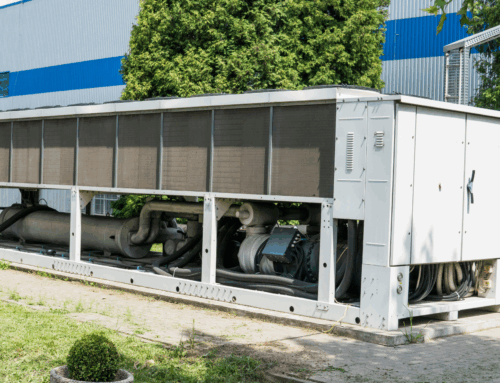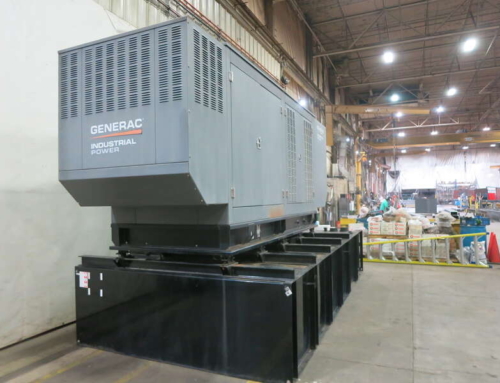In the constantly advancing world of technology, data centers stand as the foundation of constant operations for organizations. Integral to their advantages are backup generators, serving as indispensable protection during power outages. To ensure the quality of these basic resources, maintenance is important.
This article discusses key aspects of data center generator support, offering knowledge into the significance of regular maintenance. From scheduled inspections to environmental considerations, this resource intends to provide users with the information required to optimize generator performance, limit downtime, and enhance the working of data center operations.
Importance of Generator Maintenance
| Aspects of Importance | Description |
| 1. Reliability and Uptime: | Reinforcement generators are vital for continuing operations during power cuts. |
| Regular maintenance improves generator quality, ensuring consistent operations. | |
| Downtime because of generator failure can have serious consequences for organizations. | |
| 2. Cost Avoidance: | Unplanned generator failures can result in significant repair costs and operational downtime. |
| Proactive maintenance helps identify and address issues early, preventing costly breakdowns. | |
| 3. Business Continuity: | In sectors where uninterrupted power is critical, generator maintenance is a cornerstone of business continuity plans. |
| Well-maintained generators contribute to the overall resilience of the organization. | |
| 4. Compliance and Regulations: | Many industries are subject to regulatory requirements regarding backup power systems. |
| Regular maintenance ensures compliance with these regulations, avoiding potential penalties and legal consequences. | |
| 5. Prolonged Lifespan: | Proper maintenance practices contribute to the longevity of generators. |
| Regular inspections, testing, and care of components help prevent premature wear. | |
| 6. Optimal Performance: | Maintained generators operate at peak performance levels, providing the required power output when needed. |
| Routine checks and adjustments optimize efficiency and minimize the risk of performance degradation. | |
| 7. Safety Considerations: | Generator malfunctions can pose safety risks to personnel and the surrounding environment. |
| Regular maintenance includes safety checks and ensures that generators operate within specified parameters. |
Regular Inspection and Testing
Regular inspection and testing are indispensable parts of a generator maintenance program, ensuring the quality and performance of power generators. Regular inspections include a careful assessment of key generator parts, including fuel systems, batteries, and cooling systems. Visual examinations recognize indications of wear, erosion, or potential issues that could impact execution during a power outage.
Load bank testing is another basic viewpoint, re-enacting genuine circumstances and checking the generator’s ability to deal with differing loads. This cycle not only affirms the generator’s capacity to help with the necessary electrical burden. The suggested recurrence for load bank testing relies upon factors like generator use and ecological circumstances.
By directing regular inspection and testing, users can resolve possible issues before they arise. This proactive strategy limits the risk of generator disappointments, upgrading the general reliability of backup power systems. Moreover, a well documented inspecting and testing routine adds to compliance with industry guidelines and standards, supporting the viability of the maintenance program.
Battery System Maintenance
Battery system maintenance is a basic part of ensuring the performance and reliability of backup power systems in data centers. These batteries play an important role in starting the generator and giving continuous power during blackouts, making their smooth working fundamental for continuous tasks.
Regular battery maintenance and testing are important to resolve potential issues immediately. Experts should check for signs of corrosion, loose connections, and the condition of the battery. Load testing checks the battery’s capacity to deliver the necessary power during a power outage, giving experiences into its well-being and execution.
Taking into account the typical life expectancy of generator batteries, proactive replacement strategies are essential. Convenient substitution before the finish of the battery’s duration cycle limits the risk of unforeseen disappointments. This approach guarantees that the backup power system stays in good condition while required, adding to general business congruence.
By integrating battery framework maintenance into the generator care program, data center administrators can boost the efficiency and life span of their backup power systems. These practices upgrade the flexibility of the data center and align with industry guidelines and standards, supporting the significance of maintenance.
Cooling System Care
Cooling system care is essential for keeping up with ideal generator maintenance. Generators produce significant heat during operation, and a well-working cooling system is fundamental to prevent overheating. Regular inspection, cleaning, and maintenance of the radiator and cooling fan are important tasks. Professionals should ensure that these parts are free from dust and damage, promoting efficient heat dissemination. By focusing on cooling system care, data center administrators can reduce the risk of overheating-related issues, protecting the generator and adding to the quality of the backup power system.
Environmental Considerations and Record-Keeping
Weatherproofing:
Address the impact of environmental factors, such as extreme temperatures and humidity. Consider formulating strategies for weatherproofing generators to enhance their durability. This approach will help
- Protect generators from adverse weather conditions, preventing damage.
- Enhance the longevity of generators by minimizing exposure to harsh elements.
- Contribute to the overall resilience of backup power systems.
Documentation and Record-Keeping:
You must stress the importance of maintaining detailed records of all maintenance activities. Discuss the benefits of documentation in tracking trends, predicting issues, and ensuring compliance with regulations.
The key benefits are:
- Facilitates systematic tracking of maintenance schedules and activities.
- Enables proactive identification of recurring issues and trends.
- Assists in complying with industry regulations and standards.
Actionable Adverbs
Understanding the significance of generator support is important for ensuring the continuous activities of foundations like data centers. From upgrading reliability and uptime to addressing safety concerns and complying with regulations, every angle adds to the versatility of backup power systems. By embracing a proactive approach and utilizing the advantages of routine inspection, testing, and documentation, organizations can prevent their generator frameworks from disappointments. This exhaustive methodology limits downtime and costs, as well as builds trust.
At Central States Diesel Generators, we bring you top-notch generators. Moreover, our experts assist you with your generator needs. If you are planning to buy a new/used generator or you are looking for some parts while maintaining your generator, look no further than CS Diesel! We are here to help you find the right generator or part for all your power needs!
Find out more: 7 Reasons Why Generator Maintenance is Important?
Common Questions About Data Centre Generator Maintenance
Q1. Why is regular maintenance crucial for backup generators in data centers?
Regular maintenance is important to ensure the quality and performance of backup generators, preventing disappointments during power outages and limiting downtime.
Q2.How often should load bank testing be conducted on generators?
Load bank testing frequency depends on factors like generator usage and environmental conditions. However, a common recommendation is to perform load bank testing at least once a year.
Q3.What are the key components of a fuel system maintenance routine?
Fuel system maintenance includes regular fuel quality testing, treatment, and cleaning of fuel tanks and lines to ensure the generator receives clean and reliable fuel.
Q4. Why is battery system maintenance essential for backup generators?
Battery system maintenance is crucial for starting the generator and providing continuous power during outages. Regular inspection, testing, and timely replacement contribute to overall reliability.
Q5. How does cooling system care contribute to generator performance?
Cooling system care prevents overheating by ensuring proper functioning of the cooling fan. This maintenance minimizes the risk of issues related to excessive heat during generator operation.
Q6. What environmental factors should be considered for generator weatherproofing?
Generator weatherproofing should address extreme temperatures and humidity to protect generators from environmental stressors, enhancing their longevity and performance.
Q7. How do documentation and record-keeping benefit generator maintenance?
Documentation facilitates systematic tracking of maintenance schedules, activities, and compliance with regulations. It also aids in identifying trends, predicting issues, and enhancing communication among maintenance teams.
Q8. Why is predictive maintenance beneficial for generator systems?
Predictive Maintenance includes examining data gathered during maintenance activities to expect potential issues. This proactive methodology takes into account timely inspection, limiting downtime, and improving generator performance.










There are a few spelling issues on your website, but overall, it’s a great resource. I’ll definitely be coming back for more.